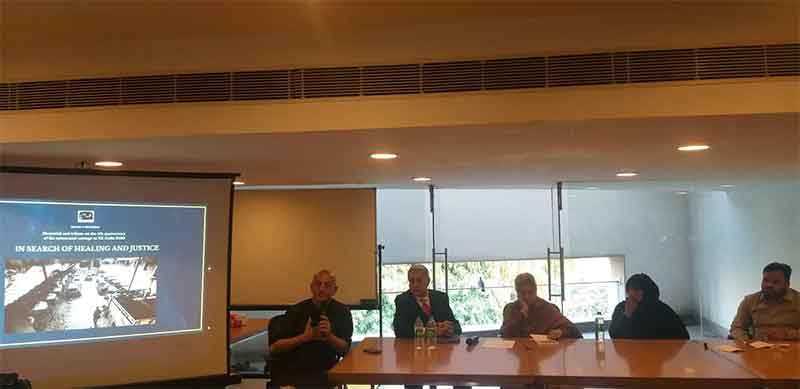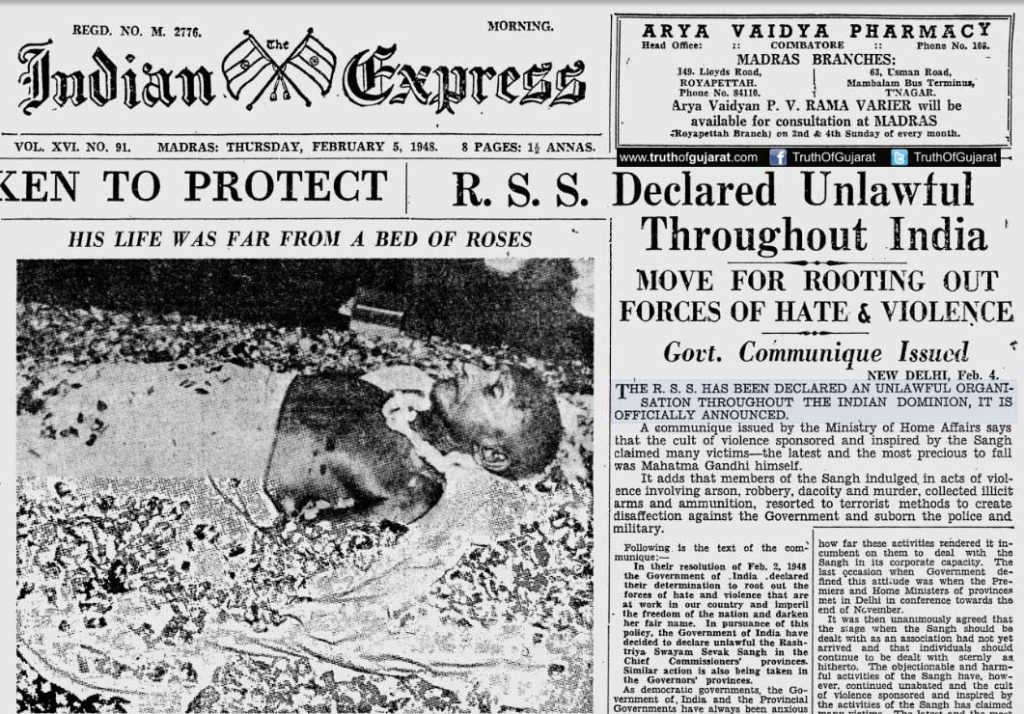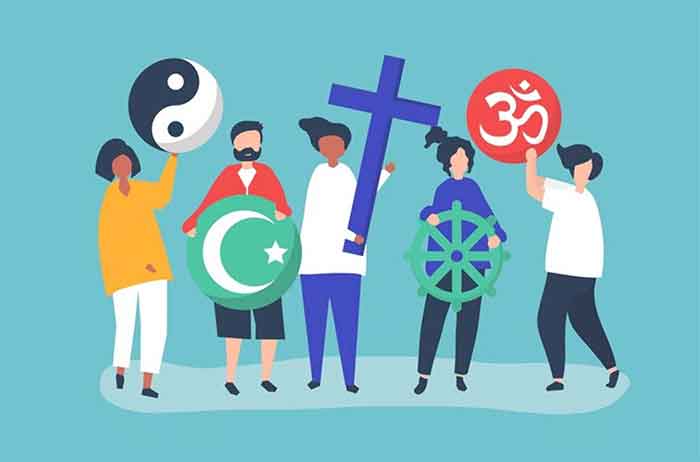
A year has passed since Mohammad Akhlaq, a Muslim ironsmith, was brutally killed in Dadri’s Bishara village by a mob of cow vigilantes in front of his family for allegedly having stored and consumed beef. Notwithstanding the widespread national and international condemnation there seems to be no let up in violence by Cow vigilantes. In the latest incident on September 14, Muslim residents in a village in Alwar were attacked and looted on suspicion of cow slaughter and on August 24, a Muslim woman and her 14-year-old cousin were reportedly gang-raped and two of their relatives murdered in the Mewat for having allegedly consumed beef in less than a month of Una Dalit flogging. Earlier on July 26 two Muslim women were thrashed by cow vigilantes until one of them collapsed at Mandsaur railway station in Madhya Pradesh for allegedly carrying beef and on March 18 two Muslim cattle traders were beaten up and hanged to death from a tree in Jharkhand’s Latehar district and on June 10 cow vigilantes had forced two Muslim men in Haryana to eat cow dung and drink cow urine for allegedly transporting beef. Unfortunately, the list of such incidents is shamefully long and also increasing with each passing day.
As the violence against Muslims and Dalits in the name of cow protection by self-proclaimed vigilantes, who have become law unto themselves, continues unabated especially after BJP assumed the power, it throws up many complex and disquieting questions. Are cow vigilantes, mostly associated with a right-wing Hindu organisations, induced by their reverence for cows or they are all politically motivated? Has the victory of BJP in 2014 given rise to the right-wing Hindu extremism as evident in steep rise in violent vigilantism across the country? Can we impose dietary preferences of one religious community on others in a secular democratic country like ours? Can religious sentiments of one group trample on the rights of others? These questions are central to our democracy.
This can’t be mere coincidence that most of these incidents have been reported from BJP ruled states though other states are not completely free from this menace. What is more unsettling is that in most cases the cow vigilantes enjoy the tacit support of the state governments and police remain mute spectators. The Maharashtra and Haryana government’s recent move to recruit volunteers to track and check animal slaughter is a case in point. There is also media report suggesting how these cow vigilantes flourished in PM home state where Best Cow Protector award was instituted when he was the chief minister. Instead of reining in these extra-legal vigilantes the attempts by senior BJP leaders, ministers and legislators to soft-pedal their crimes unmask its real face.
Veneration of cow among Hindus is undeniable. They consider cow slaughter a sin and consumption of beef a taboo. But the BJP is not motivated by compassion towards cow rather it seems to be more interested in using it as an emotive metaphor to mobilise voters. For BJP it is a new symbol replacing attenuated Ram Mandir to unite Hindu voters across caste, class and region. The cow vigilantes are reckoned as protector of Hindu religion and culture and thus help BJP to boost its Hindutva image.
The BJP, however, failed to gauge the political fallout of cow ride. The post-Una unprecedented nationwide Dalit mass mobilisation has become nightmare for the BJP eying on 2017 UP elections where Dalits and Muslims together constitute 39 per cent of the electorate and may gulp BJP’s ambition to capture power in this crucial state. The PM’s castigation of cow vigilantes after Una must be viewed as an attempt to contain swelling Dalit indignation. While the PM’s condemnation is commendable, what is shocking is that similar sentiments were never on display when Akhlaq was publically lynched or other Muslims were murdered, attacked or harassed by cow vigilantes. We do not need to go very far to find an answer to his appalling silence on Dadri and emotional outburst on Una. As long as Muslims were being targeted by these cow vigilantes it did not harm BJP politically as they have never been its traditional voters. But BJP can’t afford to alienate Dalits who had voted for BJP in the 2014 Lok Sabha elections substantially for the first time in the electoral history.
In any democratic society letting others to decide as to what one should eat, drink and wear is a dangerous proposition. Can religious values and social practices of one community be imposed upon others in the face of religious freedom guaranteed in our constitution? If we tolerate this it will open up a Pandora’s Box. Can Muslims demand that all wine shops be closed and selling of pork be banned as it hurts their religious sentiments? The Jain community has already asked for complete ban on sale of meat at least eight-day of Paryushan. In democratic secular country the role of the state is to promote pluralism and diversity and remain neutral to religious and cultural practices of different communities and it must not take sides. The BJP leadership had better realise that food habits cannot be changed either by cow vigilantism or by enacting stringent laws. It should also not forget that Muslims and Christians are not alone who eat beef rather it is also cheapest source of protein for a very large number of poor people belonging to SCs, STs and some OBCs.
The recent incidents of violent cow vigilantism are sign of deep rooted malaise that must be sternly dealt with lest the situation gets out of hand completely. Mere political rhetoric and half-hearted condemnation will not work. It is time to pause and introspect. Are we heading towards rabid majoritarianism giving up our constitutional vision of democracy and secularism? James Madison who sponsored the American Bill of Rights rightly observed: “It is of great importance in a republic not only to guard the society against the oppression of its rulers but to guard one part of the society against the injustice of the other part. If a majority be united by a common interest, the rights of the minority will be insecure.”
The writer is a Professor of Political Science at Aligarh Muslim University, Aligarh.















































